Coachability is not a place that you arrive at or even a place that you stay for that matter. You can’t cross off “becoming coachable” from the metaphorical to-do list. This is because we are all both coachable and uncoachable at different points in our life. The ultimate goal is to realize when you are not, and open up to the possibilities that being coachable can provide you. In this article, we will talk about ways that you can make yourself more coachable.

What does it mean to be coachable?
Coachability is not a technical skill or an inherent strength. It is a mental attitude.
Coachability, plainly put, means that a person is open to receiving feedback and constructive criticism. In addition, they will use that feedback and criticism to improve their efforts and performance.
Skill and knowledge can only carry you so far. You might find success once or even a few times with them, but it’s unlikely that you will achieve new, bigger, and more fulfilling goals unless you keep improving. And that is done by being coachable.
Finding a competent and compatible coach is only half the battle. It’s also important to develop your own coachability.
What does it mean to develop your coachability?
Coachability is being receptive to feedback, including constructive criticism, and being willing to use it to implement changes and improvements in behaviors and/or performance.
In your personal life, you probably have things you wish to accomplish and achieve. Professionally, if you’re like most professionals, you probably want to succeed. But in both cases, you may resist coaching for reasons that you’re not even aware of.
The good news is you can develop skills and qualities that will prepare you to not only accept guidance but also act on it.
Benefits of Being More Coachable
The purpose of improving your coachability is not just a matter of making you more compliant with your coaches. The fact of the matter is that it has numerous benefits for you.
Some of the benefits of improved coachability include:
- An accelerated pace of progress in your journey.
- A smoother and more satisfying experience.
- Success will start to come more naturally to you.
Let’s start out with some signs that you may be at an uncoachable period in your life.
Signs that you may be uncoachable
Resistant
Not being open to change can present itself in several ways. Do you find yourself feeling that your way is the only way to get something done, or have an unwillingness to do something new because “it has always been done this way”?
In my tenure as a government employee, the culture in the workplace was s unmovable because of the “it’s always been done that way” mentality. Leaving the possibility of new and improved ways of doing things impossible.
You may even find yourself saying “I already tried XYZ, and it didn’t work.”
Not being open to new angles, perspectives, and frames of reference makes someone intrinsically uncoachable.
Lacking self-awareness and the ability to be vulnerable
Some people see vulnerability as a weakness. But the opposite is actually true. Vulnerability is a sign of strength and courage, and lacking it can prohibit us from being our true and most authentic selves.
We can’t grow personally, lead a team, or successfully run a business if we can’t be authentic with ourselves and others around us.
Vulnerability is a major piece of self-awareness.
Lacking power
If you expect a coach (or anyone else for that matter) to solve all your problems and issues or provide a magic fix, you are not ready to walk in your full power and authority.
If you are want to be told exactly what to do, you are minimizing your participation in your success and possibly wanting to have someone to blame if/when there is a failure.
A person looking to grow, running a business, or leading a team cannot relinquish personal responsibility and expect someone else to make decisions for them.
Always right
Are you a know it all?
I highly doubt that you rushed to answer that question with a yes. But here are a few characteristics that you might be a know it all:
- Find yourself getting into arguments with others often?
- Feeling like others are lacking knowledge or not as smart as you are?
- Do you mostly find yourself talking about yourself or your personal accomplishments?
These three questions are not the end-all-be-all test for qualifying as a know it all, but if you answered yes to any of these questions, know that this just might be you. So read it with an open mind.
When a know it all seeks out coaching but does not surrender this position, it can be a very uncomfortable experience.
If you are looking for evidence to support your own opinion without the necessary openness, you may lack the ability to make a coaching relationship successful.
Lacks Emotional intelligence
Someone who lacks the capacity to be aware of and express their emotions will essentially lack the ability to handle relationships with others thoughtfully and empathetically. This includes a coaching relationship. If this is the case, increasing emotional intelligence can only improve your coachability.
Unwilling to get uncomfortable
Fear is a natural and fundamental part of learning and growth. If you are waiting to take action until you are no longer afraid rather than embracing taking action with courage, you are limiting your potential.
This requires giving up control and acknowledging you don’t know… well, everything.
At least not yet.
But there is hope. You can still become and be more coachable, so let’s talk about how you do that!
This checklist can be used to find the areas you need to do work so you can have a successful and progressive relationship with your coach.
Communication Skills That Can Help You Be More Coachable
Listen closely
Tune in and pay attention to what your coach has to say.
Look to find the truth in the message rather than dismissing the perspective they provide or trying to make excuses.
To actively listen, maintain eye contact, listen without thinking of a response, and resist any urge to interrupt.
Ask questions
Make sure that you understand what your coach is telling you. Repeat things you need clarity on by paraphrasing their statements in your own words.
Clarify any points you’re unsure of and ask for specific examples where needed.
Take your time
Let yourself absorb the information completely. Focus on responding with well thought out factual responses rather than quick and incomplete ones.
If a situation brings on strong feelings, give yourself an opportunity to hold space for those feelings and calm down, allowing yourself to think clearly.
Be open to feedback
The purpose of feedback is to improve. Feedback can be incredibly useful if you want to grow.
Watch your body language
Ensure that your gestures and expressions are friendly and consistent with your words. Coaches are human. It’s easier for them to fully engage with you when they feel respected and appreciated.
Open up
Recognize that there is more than one way to approach the same goals. Consider your coach’s suggestions even when they’re different from your usual methods.
Other Skills and Qualities That Can Help Make Yourself More Coachable
Embrace the value of learning
Are you excited about adding to your knowledge and stretching your skills?
When people learn, they gain confidence in trying new things and stretching themselves
Learning is a mindset that helps you to make sounder decisions and adapt to change. It can also motivate you to persevere through the coaching process.
Set goals
While your coach can help you to reach your goals, it is important that you determine and define them. That means that your coach can help you map out the plan to achievement. But you need to be sure that your selected targets are specific and meaningful to you, and for you.
Write your goals out and tell others about them so you’ll feel more accountable.
Mind your expectations
Do you understand the difference between coaching and consulting?
A consultant is usually hired to fix a specific issue. They typically do this by analyzing and then creating solutions. They may even work on your behalf, using their knowledge, experience, and expertise.
A coach works alongside you to do the work to build your strengths and leverage your weaknesses so you can achieve the outcomes you desire.
The biggest difference is accountability. A coach will hold you accountable to get the things done that need to be done. A consultant will share what needs to be done, but not hold you to getting it done.
Knowing what to expect, helps you to manage your expectations.
Cultivate gratitude
Take inventory of what you accomplish and how your coach contributes. Thank your coach for the impact they make in your life.
Putting their insights into action is also an effective way to show them that they’re making a difference.
Be humble
Remember that your coach, and anyone you meet for that matter, have valuable things that they can teach you.
If you are wanting to be better, the first step is accepting that you are not perfect. Humility is taking note and accepting the work that needs to be done to change and grow. It is not letting ego get in the way of this process of change.
Curb your ego so you can create productive relationships and take advantage of rewarding opportunities.
Practice consistently
How can you take what you learn from coaching and use it to make positive changes in your life?
You do this by developing a strategy for enhancing your effort and set specific goals for areas where you want to grow.
Deliberate practice requires discipline and effort, but it pays off.
Evaluate your progress
Self-examination is an important part of the coaching process. So start by reflecting on the areas that you’ve already covered and what you want to do next. Then enjoy discovering more about yourself and your abilities.
I often recommend that my coaching clients keep a journal to document their accomplishments, lessons, and experiences so they have it to reflect over.
Sometimes when we are not accomplishing things that we wish to accomplish going back and reflecting over times where we did accomplish things can help provide a shift.
Being coachable is about being ready and willing to learn and grow.
The goal of coaching is to unlock your full potential so you can achieve greater personal and/or professional success.
Coaching can help you to clarify your vision and leverage your strengths if you know how to use the resources provided to you by your coach.
The most essential characteristic is awareness.
Having the awareness of when we’re being coachable and when we’re not is key. The ability to reflect and realize that we are being resistant, for example, can then allow us to take some steps to actually give the feedback provided by someone a try.
Looking for a coach to help you set yourself up for personal and/or professional success?
Check out my coaching services and schedule a discovery call today to see if we are a good fit to work together.



